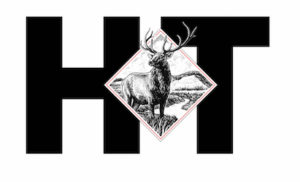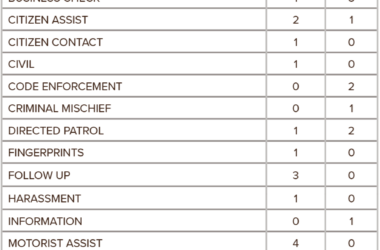RBC I Hunters and anglers are America’s greatest wildlife conservationists.
Really? While it seems contradictory that people who claim to love animals would shoot and eat them and that killing something could actually save it, there are very compelling reasons that prove this statement true.
First, a little history to provide perspective.
When America’s original settlers landed on these shores, there were no game laws in place to protect what was at the time an abundant wildlife resource. As the human population increased and the country’s settlers grew restless and began heading west, they needed materials for shelter and survival — and lots of food.
Commercial hunters killed wildlife on a large scale to provide sustenance, clearing great swaths of habitat to provide resources and space to build settlements, farms, ranches, towns, cities and railroads.
This vigorous westward migration led to one of the most powerful and successful countries the world has ever seen. But the rapid growth had some very negative consequences for native wildlife.
By the mid-1800s, the populations of deer, elk, fish, fowl and other game animals that fueled the expansion became quickly and dramatically depleted. Some species disappeared entirely due to over-exploitation, like the once plentiful passenger pigeon, whose great migratory flocks once darkened the nation’s daytime skies.
It became clear to the country’s early conservationists that if wildlife was not vigorously managed and regulated, much of it was in danger of disappearing for ever.
Concerned sportsmen began demanding government regulations to protect wildlife and its habitat, willingly paying for the privilege to hunt and fish and provide funding for the enforcement of new wildlife laws.
Eventually, a new and uniquely American conservation philosophy arose that proved to be the most effective wildlife management effort in the world. Within a few decades, the alarming decline of much of America’s wildlife was successfully halted, then successfully reversed.
Known as “The North American Wildlife Conservation Model,” the proponents of the new management concept declared that the nation’s wildlife belonged to all Americans and that it would be managed so that wildlife would be sustained in perpetuity for future generations.
The guiding principles of the model are referred to as the “Seven Sisters of Conservation: Natural resources and wildlife on public lands are managed by government agencies to ensure that current and future generations always have wildlife and wild places to enjoy; Prohibition on Commerce of Dead Wildlife; Commercial hunting and the sale of wildlife is prohibited to ensure the sustainability of wildlife populations; Democratic Rule of Law is that everyone has the opportunity and responsibility to develop systems of wildlife conservation and use; Hunting Opportunity for All — Every citizen has an opportunity, under the law, to hunt and fish in the United States and Canada; Non-Frivolous Use — Laws restrict against the casual killing of wildlife merely for antlers, horns or feathers; International Resources — Cooperation between counties to ensure wildlife that crosses borders are managed with a cooperative effort; and Scientific Management — The utilization of sound science and research for the perpetuation of wildlife.
To enforce these wildlife laws, the states created management agencies like Colorado Parks and Wildlife that have continued to successfully protect, preserve and enhance the nation’s wildlife into the 21st century.
What is very important about this management model, and what few in the general public may know, is that Colorado Parks and Wildlife, unlike most other government agencies, is an “enterprise” agency and receives no Colorado General Fund revenue for wildlife management.
Instead, the enormous and difficult task of successfully conserving a wide variety of wildlife populations and habitat is funded primarily through the sale of hunting and fishing licenses.
Hence, my statement at the beginning of this article; without a doubt, hunters and anglers are America’s greatest wildlife conservationists.
Their direct efforts and financial contributions have prevented further over-exploitation of wildlife. And, through hunting, wildlife managers have the most effective tool for maintaining healthy populations of the wide variety of species that now roam, fly and swim across the country in great numbers and will continue to do so into the foreseeable future, for all to enjoy.
Indeed, there is a variety of ways Colorado Parks and Wildlife receives funding, whether it is from the millions of dollars generated from the sale of Colorado’s Habitat Stamp, which is required when purchasing a hunting or fishing license, Great Outdoors Colorado, or GOCO (Colorado Lottery funds), contributions from non-governmental hunting and fishing organizations, private donations, tax check-offs on tax forms or federal aid through the Pittman-Robertson Wildlife Restoration Act and the Dingell-Johnson Fish Restoration Act that distributes federal tax revenue generated from the sale of sporting goods directly to the state’s wildlife management agencies. (The more guns, ammunition, bows, arrows and fishing equipment sold, the more wildlife benefits.)
However, the several billion dollars generated by hunting and fishing license sales across the country is the primary source of funding for wildlife management. This revenue makes a variety of wildlife management efforts possible, including law enforcement, reintroduction and protection of native species, protection of threatened or endangered species, research activities, wildlife population censuses, maintenance of wildlife areas, habitat enhancement projects, fish hatchery operations, fish stocking, vehicles and equipment, fuel, employee salaries and countless other activities.
If, as some in the public would like to see, hunting is banned or scaled back or our future generations were not encouraged to hunt and fish, where would the revenue to preserve our wildlife come from? How would we continue to protect our wildlife?
It would be very difficult indeed, if not impossible.
When some in the public insult hunters and disparage regulated sport hunting as being detrimental to the very existence of any healthy wildlife species, I say that they are very misinformed. It is disrespectful to sportsmen and sportswomen and to the wildlife professionals who have spent their careers and lives studying, protecting and enhancing everyone’s wildlife.
President Theodore Roosevelt, known by many as the “Conservationist President,” once said, “There can be no greater issue than that of conservation in this country.”
By Jeff Yost
Terrestrial Biologist
Colorado Parks and Wildlife





















